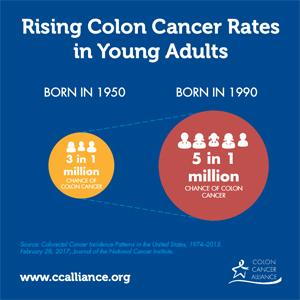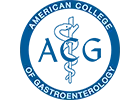New Colon Cancer Screening Starting Age
posted: Jul. 13, 2018.
The American Cancer Society (ACS) has recently updated their starting age recommendation for colon cancer screening to now begin at age 45 for people of average risk. This change is significant since it has been universally accepted for many years that non-symptomatic colon cancer screening should begin at age 50.
In light of the ACS guideline change, I wanted to take this opportunity to explain why they made this change and how it affects adults over 40 years of age.
Why did the ACS update the Colon Cancer Screening Starting Age?
The ACS guideline change is based on a study they conducted on adults (ages 20-54) that revealed that the death rate of this age group due to colorectal cancer had been increasing since the mid-2000s. The primary findings from this study are as follows:
- The death rate for colorectal cancer in adults ages 20 to 54 increased by 1% each year from 2004 to 2014.
- The death rate for colorectal cancer among those ages 20 to 54 increased in white people by 1.4% each year since 2004. In contrast, the death rate slowly decreased in black people throughout the 45 years studied.
- The death rate is also increasing among adults in the screening population – people in their early 50s. This finding highlights that people are delaying getting their first colon cancer screening exam, which is resulting in a higher incidence of colon cancer.
NOTE: Colon cancer is very treatable when detected in its’ early stages. Getting screened significantly lowers your risk, which is why we are heavily promoting colon cancer awareness in the Plano, Dallas, Frisco TX and surrounding areas.

When should I be screened for Colon Cancer?
Prior to the updated recommendation by the American Cancer Society, the universal starting age for colon cancer screening was 50 years of age. Until other societies like the American College of Gastroenterology and American Gastroenterological Association issue their opinions on the ACS this topic is debatable.
My recommendation is to discuss with your doctor the pros and cons of when you should start colon cancer screening and collectively an educated decision can be made.
NOTE: Colon cancer screening ages can differ for those with a family history of colon cancer, polyps, symptoms and ethnicity. Please consult with your doctor to decide when you should start screening for colorectal cancer.
Does Insurance cover the cost of Colon Cancer Screening?
Screening tests for those adults at average risk for colon cancer are typically covered by insurance. Whether insurance providers will adjust their coverage to include adults beginning at age 45 is unknown.
We recommend that patients discuss coverage with their insurance provider to fully understand their financial responsibilities prior to scheduling a colon cancer screening.
Colon Cancer Screening Options
For most colon cancer screening has always been synonymous with a colonoscopy procedure. Other screening test options are available and should be discussed with your doctor if you have an apprehension towards colonoscopy.
Colonoscopy is considered the gold standard colon cancer screening exam since it is the only exam that allows your doctor to both detect and remove polyps in the same procedure. If you use a home test and receive a positive result, you will need to have a colonoscopy to remove any polyps.
I fully support a higher participation rate for colorectal cancer screening for those patients in the Plano and Dallas TX areas. If the usage of home or other testing methods than colonoscopy increase the screening rates, I am in favor of using alternative tests.
STATISTIC: 20 million + Americans over age 50 do not get tested for colon cancer. We can beat this cancer with early detection… get screened!
Do I need an office visit prior to scheduling a Colonoscopy?
NO. Dr. Malik offers Open Access Colonoscopy, which is a colonoscopy procedure that does not require the patient to have an office visit with their Plano, TX gastroenterologist prior to their procedure. The exchange of all needed information is done over the phone. This saves the patient both time and the expense of an office visit.
Click this link to learn more about open access colonoscopy.




